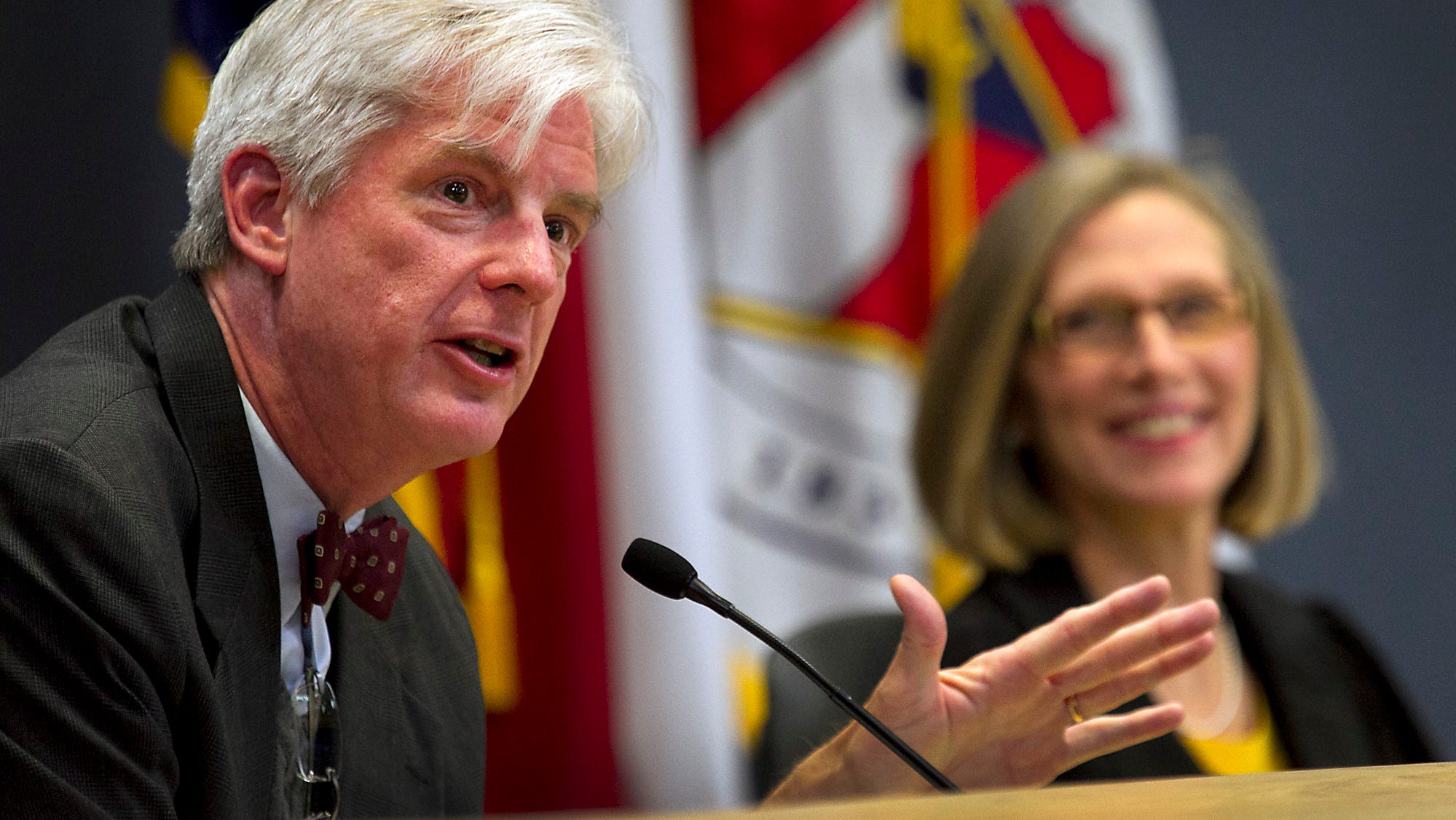news
Former Austin Council Member, UT Professor Bill Spelman Dies at 68
Former Austin City Council member and UT professor Bill Spelman, known for his data-driven policymaking and policing research, has died at 68.
Published July 22, 2025 at 10:15am

Bill Spelman, a former Austin City Council member and University of Texas professor known for championing data-driven policymaking and his research on policing, has died. He was 68.
U.S. Rep. Lloyd Doggett, D-Austin, broke the news of Spelman’s passing Sunday on X. He died Thursday, his wife, conservationist Niyanta Spelman, told the American-Statesman. A cause of death has not yet been confirmed, she said.
Spelman served on the Austin council from 1997 to 2000 and 2009 to 2015. During that time, and as a teacher at the Lyndon B. Johnson School of Public Affairs at the University of Texas, the physically towering Spelman garnered a reputation as humble, courteous and a thorough public servant — one eager to dig into details and help cities function more effectively.
“From City Council to the LBJ School, Bill brought intellect, integrity, and heart to everything he did,” Doggett wrote in his post. “Our community is stronger because of his service.”
Spelman began a life in politics as a city commissioner in his hometown of Los Angeles at age 17. He received his doctorate in public policy at Harvard University and worked as a researcher for the Police Executive Research Forum, a Washington D.C.-based criminology and policing think tank led by city police chiefs, through the 1980s. He moved to Austin in 1988 to teach at the University of Texas.
As a professor at the LBJ School, Spelman taught widely across the program. He published extensively in criminology and urban policy and from 1997 to 2004 led the Texas Institute for Public Problem Solving, which trained some 13,000 police officers in community policing.
Heidi Gerbracht, who studied under Spelman and became his chief of staff during his second City Council stint, described Spelman as a skillful teacher who could break down complicated quantitative topics to his students and who cared about his students' ideas.
“He thought that his students had something smart to say. I find it to be one of his best qualities as a teacher,” Gerbracht said. “I think probably a lot of professors think that they’ve heard it all.”
In policy creation, Spelman’s views followed the numbers he saw, even when they put him in the minority, Gerbracht said. During his latter stint on the council, Spelman called on Austin police to reevaluate how officers spent their time and encouraged the city to consider alternative programs to reduce crime.
His former council colleague Kathie Tovo said Spelman’s legacy includes reshaping how Austin thinks about public safety.
He introduced “a broader view of safety and policing: that it was more than just about the police officers that we hired,” Tovo said. “This is something the subsequent councils built on.”
Spelman also focused on housing, environmental issues and governmental efficiency. He is remembered for helping keep Austin Energy under city control and for championing paid family leave for city employees.
His attention to budgets and department spending was a political asset during the city’s recovery from the Great Recession, former Council Member Laura Morrison said.
Diagnosed with a neuroendocrine tumor of the pancreas in 2012, Spelman remained committed to public service. So well-liked was he that Mayor Lee Leffingwell ordered his staff to write a skit urging Spelman to return from surgery to “come back and break those [tie] votes,” as Leffingwell recalled.
Spelman returned within a month. “I don’t recall him missing any days beyond that,” the former mayor said.
Spelman chose not to seek reelection in 2015. Due to a state law prohibiting employees from receiving two public salaries, Spelman did not accept pay during his council service. His motivation, his wife said, was simple: “He cared about his community. He cared about the world.”
Spelman is survived by his wife; two sons, Ronan and Jasiel; and a sister, Janice.
Despite his demanding career, Niyanta Spelman said her husband made time to read every Harry Potter book to one of their sons and attend every chess and soccer game either child participated in. He also enjoyed playing the piano and dancing. He lived the life he wanted, she said.
“It wasn’t about collecting lines in a résumé, it wasn't about making money, it wasn’t about personal accolades, it was about making the world a better place. About being open and fair and compassionate,” she said.
Spelman will be cremated in a private ceremony Thursday, his family said. A public memorial service will be held at a later date to be determined. In lieu of flowers, the family asks that people consider performing community service.

